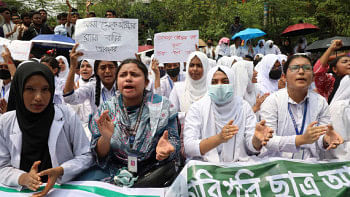Boost tech use for higher growth: Wahiduddin
Bangladesh needs a transformational change in technology use and productivity to reach the next phase of development, said Wahiduddin Mahmud, a noted economist, yesterday.
“You will have to have higher technology, higher productivity,” he said in a daylong seminar styled “Investment in Bangladesh: Challenges and Prospects for Realisation of Vision 2041”, organised by the National Defence College.
Bangladesh's present economic growth was achieved by the dint of technological improvements in agriculture, remittance by migrant workers and small-scale enterprises.
Semi-skilled workers currently account for the majority of the remittance earnings and they shoulder the garment sector, the country's preeminent export earner, too, said Mahmud, also an adviser to a former caretaker government.
“Bangladesh needs more trained and skilled manpower to utilise the opportunities for economic growth,” he said, with the citing the Philippines as a case in point.
The Philippines earns more remittance than Bangladesh despite having a lower population of migrant workers.
The garment sector also cannot go on reaping the benefits of female workers' low wages, he said.
“Despite all of the garment sector's visible achievements, most of Bangladesh's economic growth comes from small-scale enterprises, which are fed by microcredit. The small-scale enterprise is the greatest strength of our economy,” he added.
At the seminar, a cohort of NDC Course 2017 participants presented keynote papers. They recommended, among other things, that the government stakeholders take adequate steps, including maintaining good governance and tackling corruption, to boost the economy.
They also emphasised the importance of advanced and developed infrastructure as well as trained and skilled manpower, saying those are essential for economic growth.

 For all latest news, follow The Daily Star's Google News channel.
For all latest news, follow The Daily Star's Google News channel. 



Comments